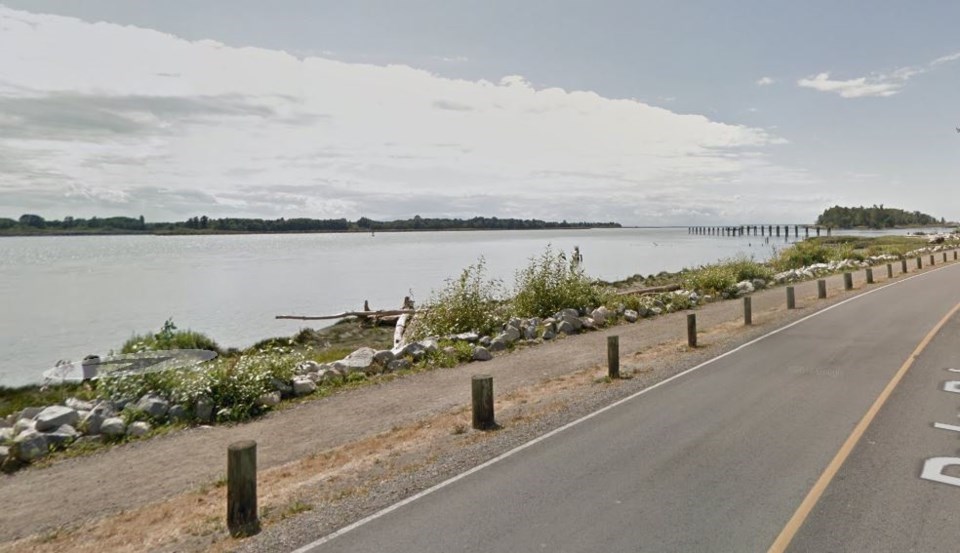The City of Richmond is looking to more than double the amount it collects in diking fees from taxpayers by 2031.
With sea levels expected to rise by a metre by the year 2100, the city is hoping to raise $30 million a year – up from the current $13.4 million – to prevent flooding as the globe warms.
In a “conceptual” table outlining how fees could increase over the next 10 years, some rates could double while others could increase 10-fold.
For example, multiple-family homes, currently paying $145 per year could see their rates rise to $260 by 2031, if council approves the 50-year accelerated diking improvement program. Single-family home rates could go from $154 to $480 per year.
Some large industrial, commercial and institutional properties – greater than 500,000 square metres – could see their current rate of $977 rise in 10 years to about $9,100 per year.
These rate hikes, outlined in this week’s general purposes committee meeting documents, however, aren’t necessarily being recommended by city staff – they will be decided later depending on whether council approves, in principle, moving forward with an accelerated diking program.
The 50-year-plan to improve dikes would allow the city to prepare for the impact of climate change, according to the city staff report.
The additional funds would allow the hiring of more staff – two engineering project managers, an environmental coordinator for sustainability, a real estate negotiator and a lawyer.
Five construction workers would also be hired on a temporary basis.
But raising the dikes will have “significant impacts to Richmond’s aquatic and terrestrial habitats,” according to the city staff report.
Compensating for habitat loss wouldn’t be covered by the $30 million raised annually by increased fees.
City staff, however, plan to report back to council separately on how to mitigate these impacts.
The diking utility was put in place in 2003 starting with a $10 per-property flat rate.
Over the past decade, the city has spent $130 million for diking, including some grants from senior governments.
This money has been used to improve pump stations and raise dikes.



